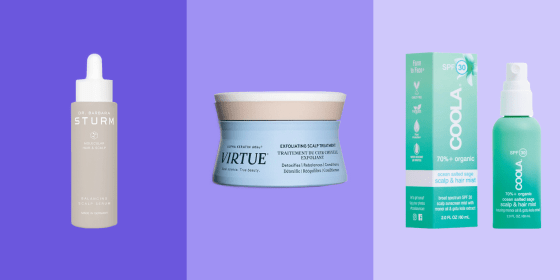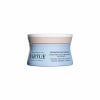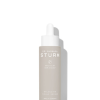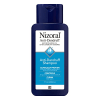The best products for maintaining a healthy scalp, according to experts





For scalp issues that are persistent or recurring (more on that below), the experts we spoke with — including a trichologist specializing in natural hair textures, dermatologists, and a hair restoration expert — recommend seeing a specialist who can devise a personalized treatment plan. For at-home scalp treatments, there are a few key things to keep in mind:
To address a variety of scalp concerns — including itchiness, flaking and excess oil — we asked scalp experts for their favorite at home treatments. Before buying, however, it may be worth consulting an expert to confirm the root cause of any scalp issues you’re dealing with, which may not always be obvious, says Atoyebi. For example, “a lot of people, especially within the textured hair community, tend to assume that if they have a flaky scalp, it’s because their scalp is dry,” she says. “More often than not, it’s actually because their scalp has excessive buildup of sebum, which is the complete opposite.” Your hairstylist or dermatologist can help point you in the right direction. Once you’re ready to shop, here are the best at-home scalp treatments to address a range of concerns, recommended by our experts:
The Philip Kingsley Flaky Scalp Mask is a favorite of Atoyebi’s: “It’s really great for soothing and relieving the discomfort that comes with flaking,” she says. Salicylic acid works to loosen flakes, piroctone olamine works to reduce fungal growth (a key contributor to dandruff), plus it has hydrating ingredients including shea butter and squalane, which work to soothe irritation, according to the brand. Atoyebi also particularly likes the packaging. “The way the tube is set up with a little tiny nozzle helps the product work around your scalp quite easily as opposed to a tub you have to dip your fingers in,” she says. “You can apply it directly onto your scalp in little rows.”
Dandruff shampoos are typically formulated to be “more aggressive” than a regular clarifying shampoo, says Atoyebi. If you deal with dandruff, she recommends Nizoral Anti-Dandruff Shampoo. It’s formulated with antifungal ketoconazole, according to the brand, which makes it “extremely effective, especially for people who have chronic or aggressive flaking,” says Atoyebi. She also recommends it for those dealing with psoriasis and seborrheic dermatitis on the scalp.
When it comes to scalp serums and leave-in products you massage into your follicles, Lolis likes the Ouai Scalp Serum. It has several plant extracts, including ginseng and chaga mushroom to boost hydration, red clover flower extract, a potential anti-inflammatory agent, and peptides to support fuller, thicker hair, according to the brand. “It improves dryness and itchiness and makes your scalp feel nice and minty after application,” says Lolis says.
Lolis also recommends the Dr. Barbara Sturm Balancing Scalp Serum, which has soothing lavender and green algae to reduce scalp irritation. It’s relatively easy to add to your existing hair care routine since you can apply it directly to the scalp on wet or dry hair and there’s no need to rinse. Lolis also likes that this formula has hyaluronic acid and vitamin BF, which “protect the hair and scalp from UV damage, pollution and heat,” she says.
To help remove buildup, Ziering likes the Christophe Robin Cleansing Purifying Scrub with Sea Salt. “It works well if you have an oily scalp and you need it to be rebalanced or for itching and irritation,” he says. Use it once weekly in lieu of shampoo to detox the scalp, according to the brand.
If you prefer a detoxifying scalp treatment without so much grittiness, Ziering also recommends the Virtue Exfoliating Scalp Treatment, which lifts and removes dirt and oil from the scalp and also exfoliates with “rice beads” and fruit enzymes. “It has a good combination of oils, especially jojoba oil, so that you’re not overly stripping the scalp,” Ziering says. “You want to restore the moisture.” Use it once weekly in place of your usual conditioning treatment, massaging into the scalp before rinsing.
Formulated with sea salt to remove buildup, Ziering also likes this Kiehl’s scalp scrub. “It has salicylic acid, which is good for inflammation and flaking,” he says. It’s also formulated with amino acids, which can prevent over drying by helping the scalp retain moisture, according to the brand. Use in place of shampoo once weekly.
Lolis recommends the mousse-like Jupiter Purifying mask for a once weekly treatment. Formulated with hydrating argan oil and exfoliating volcanic ash, it’s particularly good for those with an oily scalp, she says. Massage into the roots of damp hair and let it sit for five minutes before shampooing and conditioning.
Sunscreen is just as important for your scalp as it is for the rest of your skin. Lolis recommends adding an SPF formula specifically designed for the scalp to prevent damage from UV rays and oxidative stress. She likes this Coola SPF 30, which you can spray directly onto your scalp and hairline via a targeted nozzle. (Mist it over hair to prevent fading on color treated hair, according to the brand.)
If your hair tends to be greasier, you might prefer a powdered SPF. In that case, Lolis also likes Supergoop Poof 100% Mineral Part Powder SPF 35. Formulated with zinc oxide (an active ingredient found in mineral sunscreens) to protect against UV damage, the powdered formula also doubles as a dry shampoo, in my experience.
In addition to scalp-friendly products, regular scalp stimulation can help support healthy hair, according to experts. Atoyebi says you can do this with your fingers or with a dedicated scalp brush or massager — she likes Tangle Teezer’s two-in-one scalp exfoliator and massager. It has a two-tier bristle design: its long flexible bristles exfoliate the scalp and remove flakes, while its shorter firmer bristles stimulate circulation and boost blood flow to the scalp, according to the brand. You can use it in or out of the shower and with or without product.
This brush is bendy, and has bristles that won’t snag your hair, which is key, and also mold to the shape of your scalp, according to Lolis. It’s suitable for all hair types, from fine to coily, and you can even use it if you wear extensions, according to the brand.
It’s often said that healthy hair starts with a healthy scalp, and this couldn’t be more true according to the experts we spoke with. “The scalp feeds the hair follicles and the hair follicles generate the hair. So when the skin on the scalp is inflamed or infected, this can affect these hair follicles,” says Arora. This can lead to everything from styling concerns like dullness and oiliness to hair loss. “Recognizing signs of scalp disease early and getting treatment is definitely important,” says Arora.
Maintaining a healthy scalp can also be an important part of our overall social and emotional wellbeing, says Atoyebi. “Many scalp conditions, aside from the aesthetic impact that they have, can also have psychosocial impacts — they can affect your comfort and confidence,” she says.
Signs of an unhealthy scalp can include:
Some scalp conditions require expert diagnosis and treatment. “If symptoms have been persistent for more than two or three weeks, or it’s a ‘hey, this is the fourth time I’ve had it this month,’ kind of issue,” over-the-counter treatments might not do the trick, says Arora. If you’re dealing with persistent redness, flakiness, irritation, or an abnormal level of shedding, talk to an expert.
The experts we spoke with emphasized that there’s no one-size-fits-all scalp care routine. To find the best products to support your individual scalp health, start with these two steps:
At Select, we work with experts who have specialized knowledge and authority based on relevant training and/or experience. We also take steps to ensure all expert advice and recommendations are made independently and without undisclosed financial conflicts of interest.
Macaela MacKenzie is a journalist and former Glamour editor who has covered beauty and wellness treatments for over a decade. For this article, MacKenzie spoke to dermatologists, a hair restoration expert, and a trichologist specializing in natural textures about the importance of scalp health and the best products that will work for a variety of hair types and textures.
Catch up on Select’s in-depth coverage of personal finance, tech and tools, wellness and more, and follow us on Facebook, Instagram and Twitter to stay up to date.